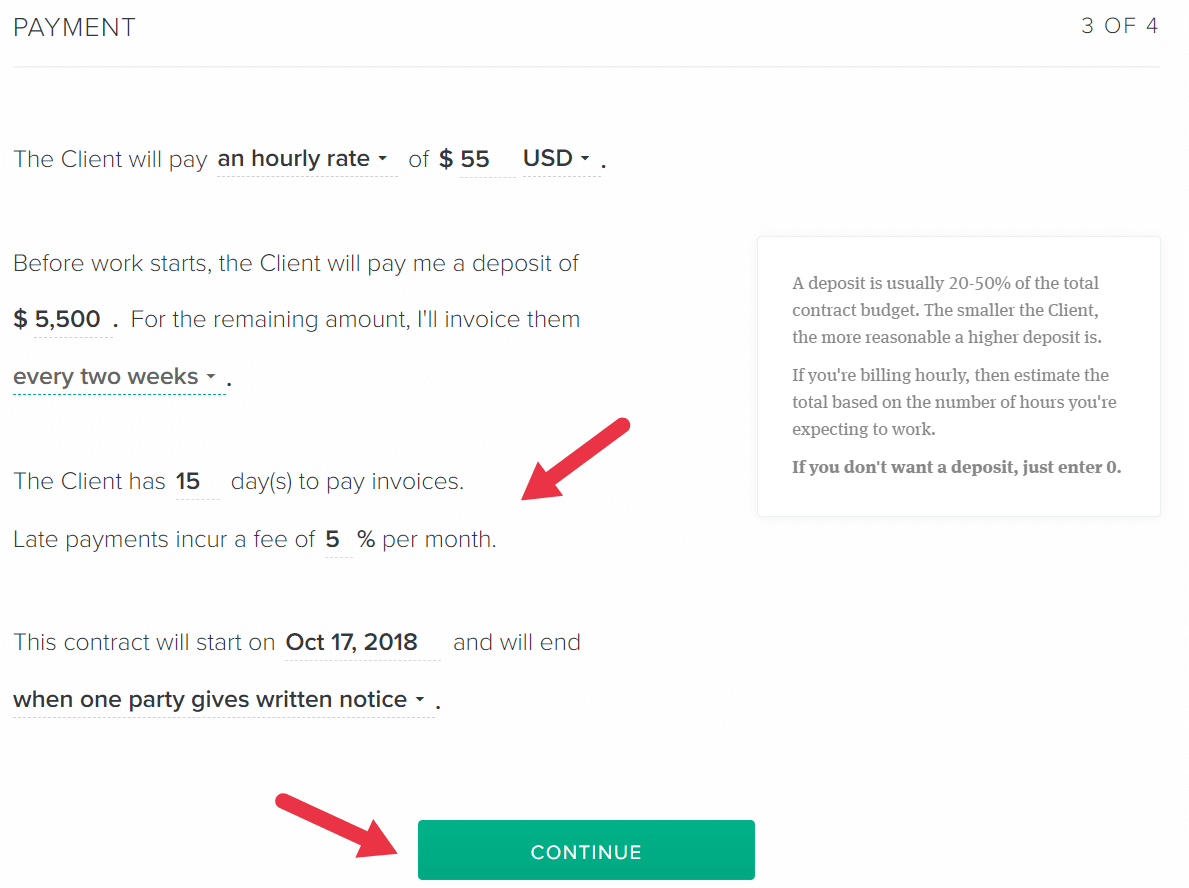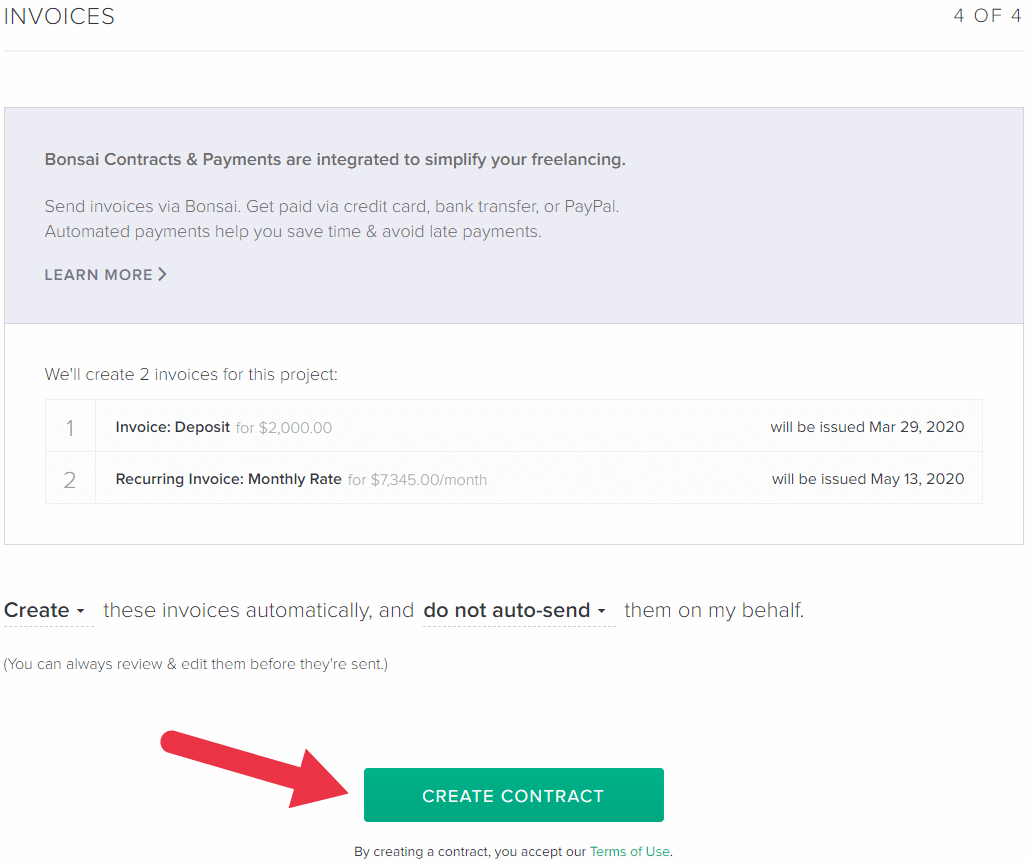Charging a freelance late payment fee is crucial for maintaining cash flow and ensuring timely payments. Start by clearly stating payment terms in your contract, including the late fee percentage and grace period. If a payment is late, send a polite reminder followed by a formal notice if necessary. Ensure your late fee is reasonable and complies with local laws. Utilizing tools like invoicing software can automate reminders and fee calculations. By enforcing late fees, freelancers can reduce payment delays, improve financial stability, and focus on their work without the stress of chasing payments.
Many freelancers are surprised to learn that sending an invoice to a client isn’t always enough to get your invoice template paid. In fact, late freelance payments are a common complaint among developers and designers who have finished a large project and are anxious to get compensated for their online contract.
A recent Freelancer’s Union study painfully reveals that nonpayment for workers in 2014 affected a staggering 34% of those who responded; of those that were paid, some waited an average of 90 days or more for money to come in from late-paying clients.
When you’re a freelancer, time is money, so it’s important to acknowledge the impact late payments can have on your business. There’s no benefit in assuming that things will always go your way. In fact, it’s best to confront the possibility head on. Fortunately, there are several proactive things you can do to avoid having to spend your time chasing your money. We also included our top 5 late fee clauses which you can simply add to your freelance contract and stay safe - read on to download them.
Here are the basics to pursuing collections and how late fees can assist in the process.

1. What is a late fee?
Didn’t get paid according to your contract requirements? There’s a solution for you. It’s possible to charge an extra amount on your next invoice in the form of a late fee. Whether you choose a flat rate or a percentage of the project cost, it’s up to you to request this amount from a late-paying client. Don’t ever assume that they will pay one without you asking first.
Some freelancers set up accruing late fees, which allows the extra amount to compound over time. For example, if you were not paid on a $1,000 project, and it is in the terms of your contract to assess a 5% late fee, you can add $50 to your next invoice. If it’s accruing, the amount will increase for every month that it’s outstanding. Late fees should always be added as an extra line item on your invoice, with a very clear description of what it is for.

2. Are they legal?
In most cases, it is absolutely within your right to ask for late fees. This assumes, however, that the fees are reasonable and that you stipulate up front (usually in your contract) that they can be assessed. What is reasonable? While there is no exact amount or percentage that qualifies, your fee amount must appear to be fair if you ever need to defend it in a court of law. A $250 late fee in a $5,000 project seems fair; a $100 late fee on a $150 project does not.
Be sure that any contract with a new client (and renewal contracts between existing clients) clearly state when the payment is due and how the late fee will be calculated. Communication issues can muddy the waters, so make no doubt in your contract terms as to how and when payment should be made.
If you require payment upon invoicing, say this. If you require payment 30 days from the date you complete work, state that. An enforceable contract is the only kind of contract you should be signing!
Do you want to see how you can create a freelance contract with such clauses in just 2 minutes using Bonsai? Here's how!
To start, just head to your Bonsai dashboard and click on "create a contract" from the right.

Now you can choose or create a client and project for the freelance contract with late fees. In this example we're using the "standard template".

During the first 2 steps you will fill in the general information for the contract, and once you reach the "payment" section things get interesting. This is where you will add your hourly rate, and any fixed price payments. Last and certainly not least, you'll have the option to set up a late payment fee which best suits your business.

Once you're done, click on "continue" and you will get to the final step of the contract creation process, where you can set up invoicing.

Double-check everything and hit "create contract" when you're ready to generate the contract. It will be ready to use, so feel free to send it to your client for e-signature.
Simple workflow, right? If you're tempted to give Bonsai's contract product a try, or explore any other feature such as proposals or invoices, feel free to sign up for the trial!
3. How can charging late fees on invoices help my business?
While a 5% late fee may not seem like any big deal, it can have quite the positive effect on a small business. Freelancers do report to getting paid more promptly when a late fee is written into a contract. It also shows clients that you are a legitimate, professional business, and that your payment standards are consistent with those values. Ultimately, when a client sees a late fee, they will prioritize your payment over someone else that doesn’t have a late fee – assuming they can pay just one of you that month. Since many late payments come from simply forgetting, it’s a stark reminder to pay attention to future invoices you may be issuing.
Late fees won’t make you rich, but they can provide a little relief for the time and energy spent running down payments. If $50 on a $1,000 contract helps you feel like you can take a half hour out of your day to send another invoice reminder, you’ll be less likely to grow frustrated by delinquent invoices and see payment management as just part of your paid job. It goes a long way in helping keep a positive attitude in a very unpredictable business.

4. How to enforce late fees
Most freelancers don’t have a problem getting clients to pay late fees but occasionally you may find a client that ignores it or refuses to pay it. To avoid this happening, discuss late fees clearly in your contract, and include a note on each invoice that refers to it. A simple line that states this will work well: “If this invoice is unpaid by the due date, a non-compounding late fee of X% accrues monthly on the outstanding amount.” (Bonsai freelance contracts & invoices already include this language.) Your contract should also have a payment due date clearly listed. Visit our guide on how to make an invoice so you'll know what other details should be included in your invoice.
For a downloadable pack of 5 easy to use late fee clauses for designers, marketers, developers, writers, videographers and more, click below.
If, after the due date has passed, you still haven’t received payment, a firm but polite email is needed. You can choose to reattach the invoice, or resend it with a personal note. Freelancer have had good luck with writing something like this with their reminder email: “I see that your invoice #XYZ is still unpaid. Please let me know if you have questions, and we look forward to receiving your payment this week. A 5% late payment fee will be assessed on future unpaid invoices. Thank you for your business.”
If you still do not receive payment, you can start including the late fee in invoices. You should also think about whether you want to continue providing services for this client. While there are good reasons for payments to be missed – such as an accounts payable person out on vacation – anything not resolved within a month or so should be a red flag that it is not the type of client you want to keep working with.
The late fee is usually enough to get freelancers paid, but in the rare case it isn’t, you can collect late fees along with the original invoiced amount when getting assistance from a debt collection agency or if pursuing the payment in court.
You shouldn’t give up on a late payment. While rare, some freelancers have waited a year or more to be paid! Never negotiate a lower payment or forgiveness of late fees in exchange for payment. If a client owes you money – and are willing clear the books – they should be prepared to pay the full amount owed.
A note on New York City
If you have done business with a client from NYC, you now have another option for collections. According to the recent “Freelance Isn’t Free” Act, any invoice not paid by the contract due date or 30 days after services (when no date is specified) can be included in a formal complaint with the New York City’s Office of Labor Policy and Standards (OLPS). If a case is decided for the freelancer, the invoice cost may be awarded at twice the original amount. (This is only for cases that are not currently in collections or in a claims court.)

Late fees are reasonable
Remember that a late fee shouldn’t be seen as a punishment. It doesn’t have to become a personal indictment against your client, and it should never be approached as anything but a cost of doing business. All medium to large-sized businesses impose these type of fees, and your client will likely be used to seeing them. As a freelancer with limited time and the inability to scale your day in the way a company can, it’s more important for you to claim your hours and get paid for them.
Late fees help you stay profitable and efficient, and encourage your clients to be prompt with their payments – all in a very professional manner. Start managing your freelance business with a free Bonsai trial and get paid faster.







